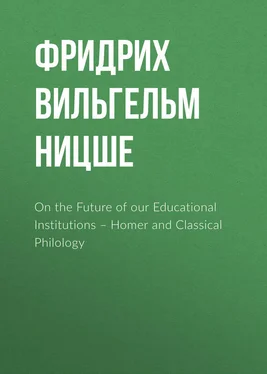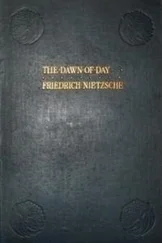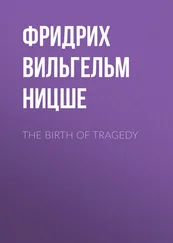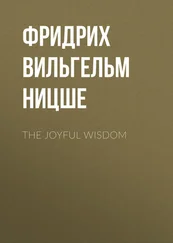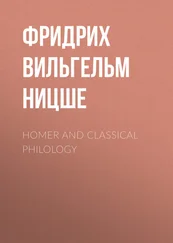Фридрих Ницше - On the Future of our Educational Institutions – Homer and Classical Philology
Здесь есть возможность читать онлайн «Фридрих Ницше - On the Future of our Educational Institutions – Homer and Classical Philology» — ознакомительный отрывок электронной книги совершенно бесплатно, а после прочтения отрывка купить полную версию. В некоторых случаях можно слушать аудио, скачать через торрент в формате fb2 и присутствует краткое содержание. Жанр: Философия, literature_19, foreign_antique, foreign_prose, на английском языке. Описание произведения, (предисловие) а так же отзывы посетителей доступны на портале библиотеки ЛибКат.
- Название:On the Future of our Educational Institutions – Homer and Classical Philology
- Автор:
- Жанр:
- Год:неизвестен
- ISBN:нет данных
- Рейтинг книги:5 / 5. Голосов: 1
-
Избранное:Добавить в избранное
- Отзывы:
-
Ваша оценка:
- 100
- 1
- 2
- 3
- 4
- 5
On the Future of our Educational Institutions – Homer and Classical Philology: краткое содержание, описание и аннотация
Предлагаем к чтению аннотацию, описание, краткое содержание или предисловие (зависит от того, что написал сам автор книги «On the Future of our Educational Institutions – Homer and Classical Philology»). Если вы не нашли необходимую информацию о книге — напишите в комментариях, мы постараемся отыскать её.
On the Future of our Educational Institutions – Homer and Classical Philology — читать онлайн ознакомительный отрывок
Ниже представлен текст книги, разбитый по страницам. Система сохранения места последней прочитанной страницы, позволяет с удобством читать онлайн бесплатно книгу «On the Future of our Educational Institutions – Homer and Classical Philology», без необходимости каждый раз заново искать на чём Вы остановились. Поставьте закладку, и сможете в любой момент перейти на страницу, на которой закончили чтение.
Интервал:
Закладка:
"I will conceal nothing from you, sir," the companion replied. "I have heard too much from your lips at odd times and have been too long in your company to be able to surrender myself entirely to our present system of education and instruction. I am too painfully conscious of the disastrous errors and abuses to which you used to call my attention – though I very well know that I am not strong enough to hope for any success were I to struggle ever so valiantly against them. I was overcome by a feeling of general discouragement; my recourse to solitude was the result neither of pride nor arrogance. I would fain describe to you what I take to be the nature of the educational questions now attracting such enormous and pressing attention. It seemed to me that I must recognise two main directions in the forces at work – two seemingly antagonistic tendencies, equally deleterious in their action, and ultimately combining to produce their results: a striving to achieve the greatest possible expansion of education on the one hand, and a tendency to minimise and weaken it on the other. The first-named would, for various reasons, spread learning among the greatest number of people; the second would compel education to renounce its highest, noblest and sublimest claims in order to subordinate itself to some other department of life – such as the service of the State.
"I believe I have already hinted at the quarter in which the cry for the greatest possible expansion of education is most loudly raised. This expansion belongs to the most beloved of the dogmas of modern political economy. As much knowledge and education as possible; therefore the greatest possible supply and demand – hence as much happiness as possible: – that is the formula. In this case utility is made the object and goal of education, – utility in the sense of gain – the greatest possible pecuniary gain. In the quarter now under consideration culture would be defined as that point of vantage which enables one to 'keep in the van of one's age,' from which one can see all the easiest and best roads to wealth, and with which one controls all the means of communication between men and nations. The purpose of education, according to this scheme, would be to rear the most 'current' men possible, – 'current' being used here in the sense in which it is applied to the coins of the realm. The greater the number of such men, the happier a nation will be; and this precisely is the purpose of our modern educational institutions: to help every one, as far as his nature will allow, to become 'current'; to develop him so that his particular degree of knowledge and science may yield him the greatest possible amount of happiness and pecuniary gain. Every one must be able to form some sort of estimate of himself; he must know how much he may reasonably expect from life. The 'bond between intelligence and property' which this point of view postulates has almost the force of a moral principle. In this quarter all culture is loathed which isolates, which sets goals beyond gold and gain, and which requires time: it is customary to dispose of such eccentric tendencies in education as systems of 'Higher Egotism,' or of 'Immoral Culture – Epicureanism.' According to the morality reigning here, the demands are quite different; what is required above all is 'rapid education,' so that a money-earning creature may be produced with all speed; there is even a desire to make this education so thorough that a creature may be reared that will be able to earn a great deal of money. Men are allowed only the precise amount of culture which is compatible with the interests of gain; but that amount, at least, is expected from them. In short: mankind has a necessary right to happiness on earth – that is why culture is necessary – but on that account alone!"
"I must just say something here," said the philosopher. "In the case of the view you have described so clearly, there arises the great and awful danger that at some time or other the great masses may overleap the middle classes and spring headlong into this earthly bliss. That is what is now called 'the social question.' It might seem to these masses that education for the greatest number of men was only a means to the earthly bliss of the few: the 'greatest possible expansion of education' so enfeebles education that it can no longer confer privileges or inspire respect. The most general form of culture is simply barbarism. But I do not wish to interrupt your discussion."
The companion continued: "There are yet other reasons, besides this beloved economical dogma, for the expansion of education that is being striven after so valiantly everywhere. In some countries the fear of religious oppression is so general, and the dread of its results so marked, that people in all classes of society long for culture and eagerly absorb those elements of it which are supposed to scatter the religious instincts. Elsewhere the State, in its turn, strives here and there for its own preservation, after the greatest possible expansion of education, because it always feels strong enough to bring the most determined emancipation, resulting from culture, under its yoke, and readily approves of everything which tends to extend culture, provided that it be of service to its officials or soldiers, but in the main to itself, in its competition with other nations. In this case, the foundations of a State must be sufficiently broad and firm to constitute a fitting counterpart to the complicated arches of culture which it supports, just as in the first case the traces of some former religious tyranny must still be felt for a people to be driven to such desperate remedies. Thus, wherever I hear the masses raise the cry for an expansion of education, I am wont to ask myself whether it is stimulated by a greedy lust of gain and property, by the memory of a former religious persecution, or by the prudent egotism of the State itself.
"On the other hand, it seemed to me that there was yet another tendency, not so clamorous, perhaps, but quite as forcible, which, hailing from various quarters, was animated by a different desire, – the desire to minimise and weaken education.
"In all cultivated circles people are in the habit of whispering to one another words something after this style: that it is a general fact that, owing to the present frantic exploitation of the scholar in the service of his science, his education becomes every day more accidental and more uncertain. For the study of science has been extended to such interminable lengths that he who, though not exceptionally gifted, yet possesses fair abilities, will need to devote himself exclusively to one branch and ignore all others if he ever wish to achieve anything in his work. Should he then elevate himself above the herd by means of his speciality, he still remains one of them in regard to all else, – that is to say, in regard to all the most important things in life. Thus, a specialist in science gets to resemble nothing so much as a factory workman who spends his whole life in turning one particular screw or handle on a certain instrument or machine, at which occupation he acquires the most consummate skill. In Germany, where we know how to drape such painful facts with the glorious garments of fancy, this narrow specialisation on the part of our learned men is even admired, and their ever greater deviation from the path of true culture is regarded as a moral phenomenon. 'Fidelity in small things,' 'dogged faithfulness,' become expressions of highest eulogy, and the lack of culture outside the speciality is flaunted abroad as a sign of noble sufficiency.
"For centuries it has been an understood thing that one alluded to scholars alone when one spoke of cultured men; but experience tells us that it would be difficult to find any necessary relation between the two classes to-day. For at present the exploitation of a man for the purpose of science is accepted everywhere without the slightest scruple. Who still ventures to ask, What may be the value of a science which consumes its minions in this vampire fashion? The division of labour in science is practically struggling towards the same goal which religions in certain parts of the world are consciously striving after, – that is to say, towards the decrease and even the destruction of learning. That, however, which, in the case of certain religions, is a perfectly justifiable aim, both in regard to their origin and their history, can only amount to self-immolation when transferred to the realm of science. In all matters of a general and serious nature, and above all, in regard to the highest philosophical problems, we have now already reached a point at which the scientific man, as such, is no longer allowed to speak. On the other hand, that adhesive and tenacious stratum which has now filled up the interstices between the sciences – Journalism – believes it has a mission to fulfil here, and this it does, according to its own particular lights – that is to say, as its name implies, after the fashion of a day-labourer.
Читать дальшеИнтервал:
Закладка:
Похожие книги на «On the Future of our Educational Institutions – Homer and Classical Philology»
Представляем Вашему вниманию похожие книги на «On the Future of our Educational Institutions – Homer and Classical Philology» списком для выбора. Мы отобрали схожую по названию и смыслу литературу в надежде предоставить читателям больше вариантов отыскать новые, интересные, ещё непрочитанные произведения.
Обсуждение, отзывы о книге «On the Future of our Educational Institutions – Homer and Classical Philology» и просто собственные мнения читателей. Оставьте ваши комментарии, напишите, что Вы думаете о произведении, его смысле или главных героях. Укажите что конкретно понравилось, а что нет, и почему Вы так считаете.
